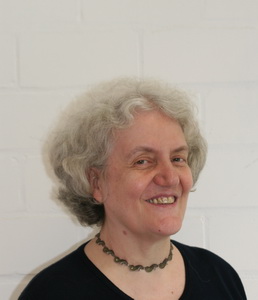Abstract by Prof. Dr. Ilse Lenz
Antifeminism and antigenderism are not just a short-term phenomenon, but are about the future of gender in the current modernisation in Europe. Ultra-religious and far-right antifeminism wants to limit or abolish freedom and self-determination in sexuality and childbearing. In combination with racism, it is particularly successful in shifting problems such as unemployment or violence onto those they make into ”others” from outside. Since the question is what the future of gender should look like, approaches that only criticise and attack the mistakes or hate language of antifeminism remain helpless. Rather, what is needed are convincing approaches and visions for it:
- Why is ‘gender’ important to objectively examine and solve current problems?
- How can a good life for all genders be achieved in a democratic Europe?
I want to say something about these questions from the perspective of the sociology of conflict and the sociology of inequality.
The sociology of conflict shows that the two parties involved in a conflict deal with each other, but at the same time try to deal with a ‘third party’ – namely all the people who live in the political community. The parties involved thus try to reach the media, the internet, the parties and these people and to influence or convince them with their contents and demands. This is usually only possible in the medium term if these demands appear to be fair. And that, in turn, requires the liberal and progressive movements to reflect on this and to be able to justify it convincingly. In other words, they have to become reflexive – also with regard to themselves and exclusions or injustices they may be committing.
In recent decades, following Michel Foucault, feminist and queer movements have linked justice primarily to the fact that no one should be excluded, and they have been widely successful in doing so. At the same time, queer and immigrant people have been included in capitalism, for example through diversity policies. In contemporary modernisation, with its various insecurities and inequalities (recognition, employment, violence, housing), social justice needs to be thought more broadly and diversely than just by the yardstick of exclusion and inclusion. Intersectional approaches, in which inequality is examined according to gender, class, migration and sexuality, are fruitful.
Furthermore, designs and visions of what a good life can and should look like for all genders (also in relation to the body) are also useful: Sexual and reproductive health, for example, means in practice good counselling and care for childbearing/pregnant women, abortions, homosexuals and trans*.
However, liberal and progressive movements must also implement gender democracy in the sense that they discuss and realise these approaches democratically. They have to make clear why this means a better life and more freedom, equality, security and participation in everyday life. In democratic processes, they must then win broad majorities for this and they must develop and apply the ways and methods for this.


